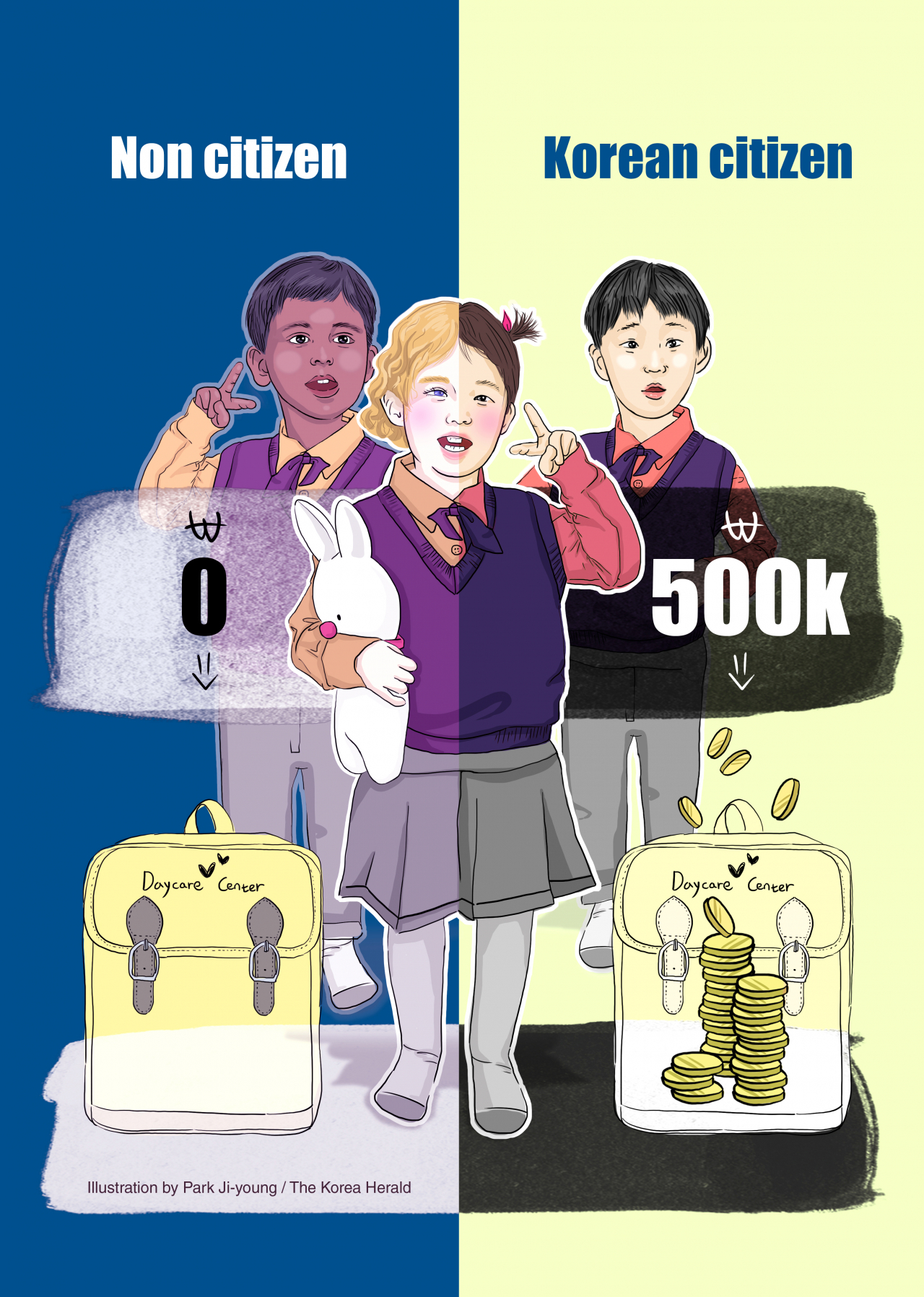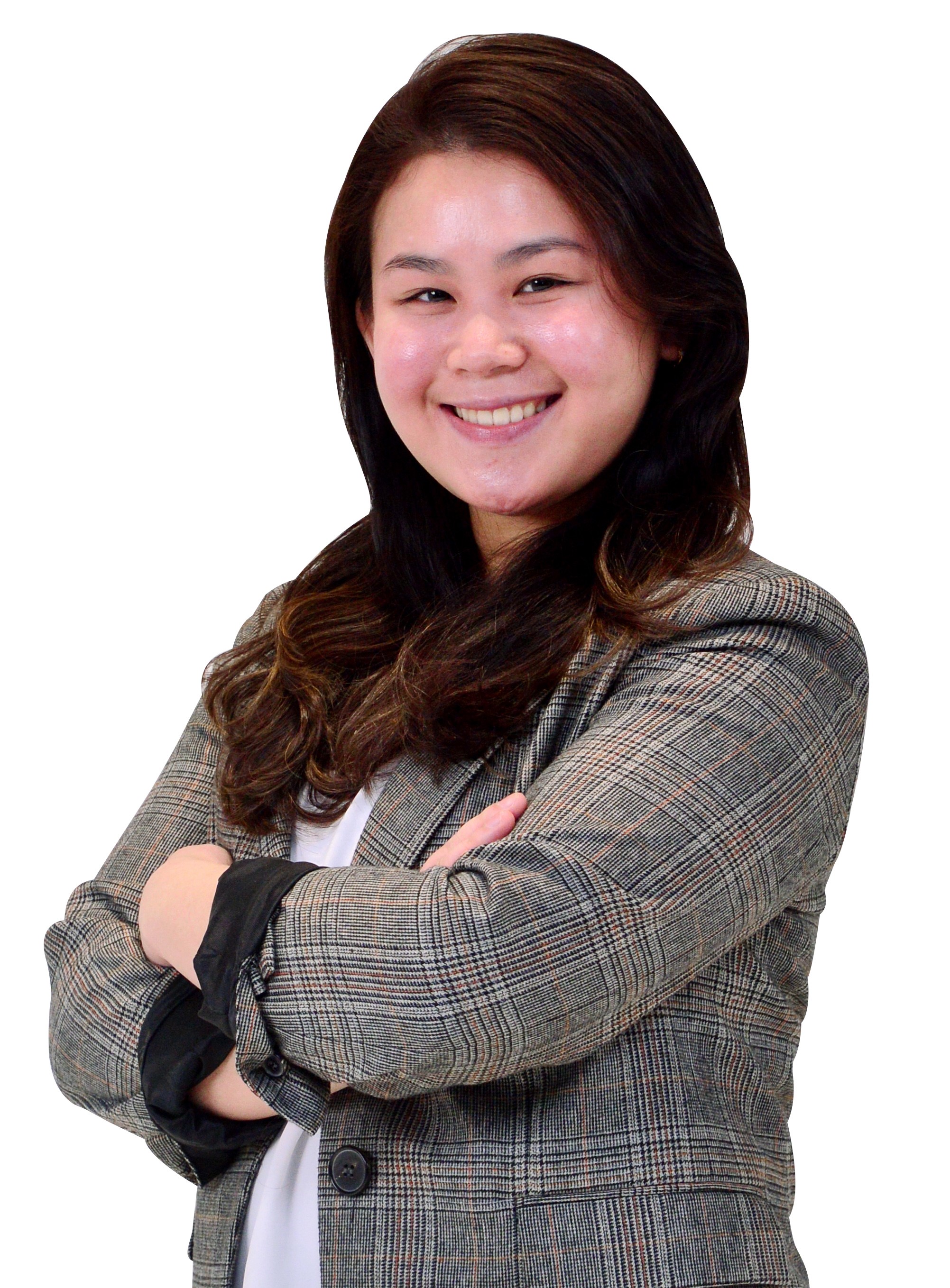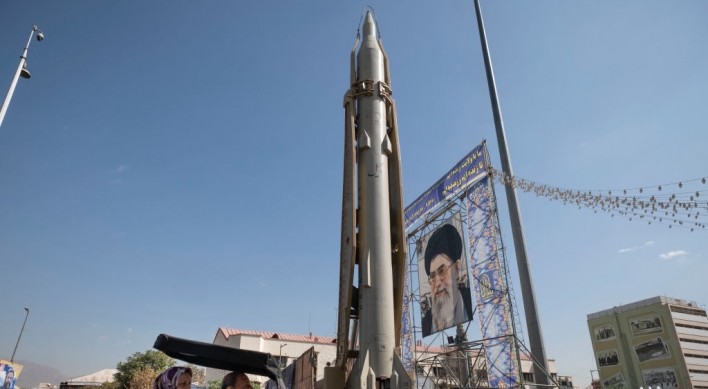[Feature] Steep day care costs put squeeze on foreigners in Korea
Expats not eligible for child care subsidies rethink Korea as forever home
By Ng Naomi Garyan, Shim Woo-hyunPublished : Jan. 17, 2023 - 16:25

Harry, who has called South Korea home for 16 years, is considering moving someplace else with more affordable child care.
A senior semiconductor engineer working for a conglomerate here, he and his wife pay some 1 million won ($810) a month for their two young children to attend day care. Unlike Korean parents, who pay far less for day care thanks to monthly government subsidies, foreigners are not eligible for the aid.
“If I’m able to find a job or get a good offer from any country, I will seriously consider to move,” said Harry, who requested using a pseudonym to avoid his employer finding out he is job hunting.
“That will be much easier for my family and my children to adjust to an English-speaking environment. And I think I will be getting much more support from the government.”
The Korea Herald interviewed six foreign parents who are not eligible for subsidies to send their children to day care. Some say the added financial burden, especially for those that pay taxes in full, has prompted them to rethink whether they can stay in the long term, while others said including them in the assistance scheme would help Korea become more international and expat-friendly.
Under the current law, only children with South Korean nationality are eligible for monthly government day care subsidies -- up to 500,000 won per child under 5 years old.
Experts say that including foreigners in such schemes is important for Korea in its fight to tackle demographic challenges and avoid losing out in the global race for talent from overseas. Korea faces fierce competition in Asia, contending with Singapore, Japan, Hong Kong and China, all of which are vying to secure skilled foreign labor to boost a shrinking workforce.
Unaffordable day care
Oliul Hassan, a father of two, said he couldn’t afford day care on his salary when he was a Ph.D. student at Kyungpook National University.
“Yes, for me it is very expensive,” said the Bangladeshi, 37, who is now a postdoctoral fellow in plant pathology at the same university. Tuition at a private day care would have set him back 400,000 won a month, half of what he was earning at the time.
Hassan and his wife had to wait until their son was 4 1/2 years old to send him to a kindergarten in Sangju, North Gyeongsang Province, where tuition was subsidized. Without the day care subsidies, he also plans to have his 9-month-old daughter stay at home until kindergarten.
At kindergartens, foreign children are also not eligible for financial support from the central government under the current law. However, six of the 17 metropolitan and provincial offices of education decided to provide 150,000 won and 300,000 won in subsidies for children going to public and private kindergartens, respectively, starting in March last year.
Farewell Korea
For some, being excluded from the scheme impacted their decision to leave Korea.
A mother of two, who had lived in Ulsan since 2017, left Korea in September for the US. Her husband, who was a researcher at a university here, got a job at Massachusetts Institute of Technology in May.
Day care was too expensive for her older daughter who was 1-year-old at the time, and she was homeschooled briefly. Eventually the director of the day care center let her daughter attend day care for an hour a day for free.
“We were just trying to like help her learn Korean social skills, and at the same time trying to cut costs,” said the mother, who asked to remain anonymous. Recalling her frustration at not being allowed to work on a family dependent visa then, even though she had a master’s degree, she said at the time she “really wanted to go back home,” where education was almost free.
Only 42 percent of foreigners who earned their doctorate degrees in Korea – 2,767 students – were able to find jobs here between 2017 and 2019, according to the Korea Research Institute for Vocational Education and Training.
At the tech firm where Harry is working, he says the number of foreign families, many of them with senior engineers like him, has dwindled year by year. When he joined the firm in 2008 there were about 30 such families, now there are only six or seven, he said.
“When it comes to providing benefits for a family, it’s very limited (in Korea),” he said.
“Most of the people in high-tech (industries), when they go for senior jobs, they have families. When they don’t get anything, any support for the families, they just consider moving from Korea.”
His former colleagues have moved to places like Canada, Sweden and Ireland, where they receive government support for schooling and other welfare benefits.
Risks of falling behind
Experts said all foreign working parents should be eligible for child care subsidies, especially as Korea struggles with an aging population and workforce.
“The long-term benefits far outweigh the short-term costs, which are themselves relatively low given that foreign residents make up less than 5 percent of Korea’s total population and those with children under the age of 5 make up only a small fraction of all foreign residents,” Erin Aeran Chung, an associate professor of East Asian politics at Johns Hopkins University, said via email.
The exclusion of foreigners in the scheme could ultimately hurt Korea’s chances at becoming an international hub in Asia, as places like Singapore, Hong Kong, Japan and China are all competing to secure skilled foreign labor to tackle a shrinking workforce.
A Korea Industrial Technology Association survey of 300 local companies showed that only 24 percent have hired foreign workers.
“The absence of family reunification rights and limited options for permanent settlement for most foreign workers as well as unequal welfare benefits make Korea a less attractive destination than other receiving countries in Asia,” Chung said.
Stalled efforts
Rep. Ko Young-in of the Democratic Party of Korea in 2021 proposed an amendment bill that would see foreign children benefit from government subsidies. But discussion in the National Assembly fell short, and the bill was not discussed again.
“More and more foreign people are living in Korea, working and paying taxes. Yet, such subsidy discrimination in children’s day care can significantly lower their life satisfaction here,” Ko said.
“It is simply wrong to sit on our hands and do nothing about such discrimination against children who cannot self-support.”
Ko also noted that Korea should reconsider its overall immigration policies in the face of demographic challenges that the country is facing today.
“The prerequisite is to make (foreign people) want to settle here, but if they feel they are discriminated against, who would want to live in the country?” Ko said.
Harry’s wife Helen describes not being eligible for subsidies as “hurtful” when they are taxed on their income as well as the house and car they own, and also pay health insurance.
“When we are paying the equal amount of taxes as Koreans, why don’t we get the equal amount of subsidy Koreans are getting? Why this kind of discrimination with us?” Helen asked.
At the very least, foreigners who work and live here should be equally eligible for the subsidy program that their taxes go toward, but the law does not guarantee that, Ko said.
But changing the subsidy scheme is unlikely to be a priority at the National Assembly.
“Politicians here have to consider if their policy pledges will be favored by the citizens who can cast votes,” Ko said, admitting that policies for foreigners are often not favored by locals.
“Many lawmakers understand the necessity for the change, but they tend to hesitate when it comes to election season.”
A more inclusive Korea
Some have argued that it would be unfair for foreigners to receive such welfare benefits, especially those who do not pay taxes. But others countered that including them in the scheme would make for a more inclusive Korea.
Monica, 38, pays 1 million won for her two boys to attend a private, Korean-language day care in Pyeongtaek, Gyeonggi Province. She and her husband, who works for the US government, do not pay taxes to the Korean government.
While she said she is happy to pay tuition for education, she believes giving all parents the assistance would help Korea become a more expat-friendly country.
It would also help foster better integration between locals and foreigners, as it would mean expat parents who otherwise cannot afford day care could let their children get education as early as possible.
“Let’s give them (foreign children) the language exposure, let’s let the little kids have an opportunity to learn Korean culture as early as possible so that they are not forcing external ideals on the internal culture that is so amazing here in this country,” said Monica, who preferred to be identified by only her given name.
“I want to show respect for Korea and the Koreans here.”


![[AtoZ into Korean mind] Humor in Korea: Navigating the line between what's funny and not](http://res.heraldm.com/phpwas/restmb_idxmake.php?idx=644&simg=/content/image/2024/04/22/20240422050642_0.jpg&u=)
![[Exclusive] Korean military set to ban iPhones over 'security' concerns](http://res.heraldm.com/phpwas/restmb_idxmake.php?idx=644&simg=/content/image/2024/04/23/20240423050599_0.jpg&u=20240423183955)



![[Graphic News] 77% of young Koreans still financially dependent](http://res.heraldm.com/phpwas/restmb_idxmake.php?idx=644&simg=/content/image/2024/04/22/20240422050762_0.gif&u=)
![[Herald Interview] Why Toss invited hackers to penetrate its system](http://res.heraldm.com/phpwas/restmb_idxmake.php?idx=644&simg=/content/image/2024/04/22/20240422050569_0.jpg&u=20240422150649)







![[Exclusive] Korean military to ban iPhones over security issues](http://res.heraldm.com/phpwas/restmb_idxmake.php?idx=652&simg=/content/image/2024/04/23/20240423050599_0.jpg&u=20240423183955)



![[Today’s K-pop] Ateez confirms US tour details](http://res.heraldm.com/phpwas/restmb_idxmake.php?idx=642&simg=/content/image/2024/04/23/20240423050700_0.jpg&u=)